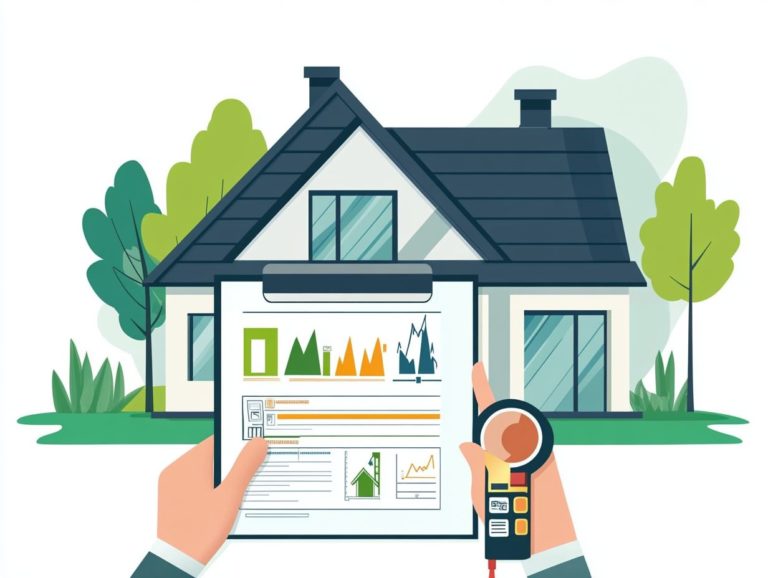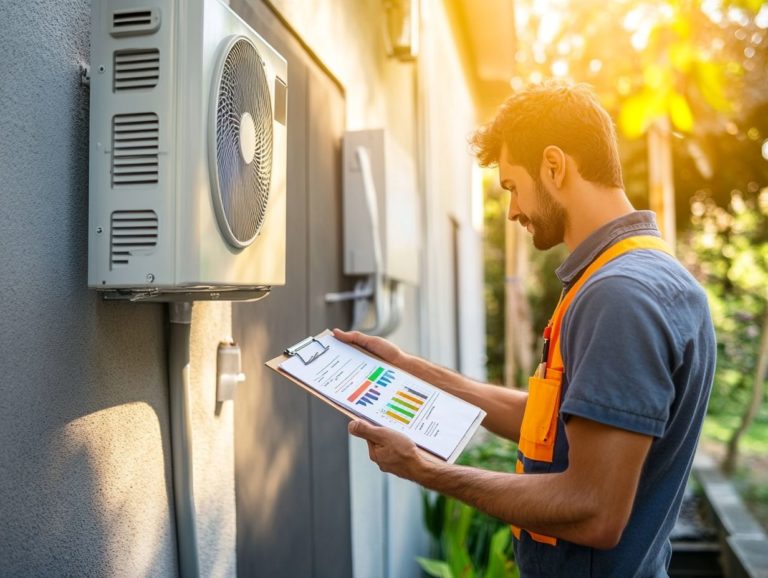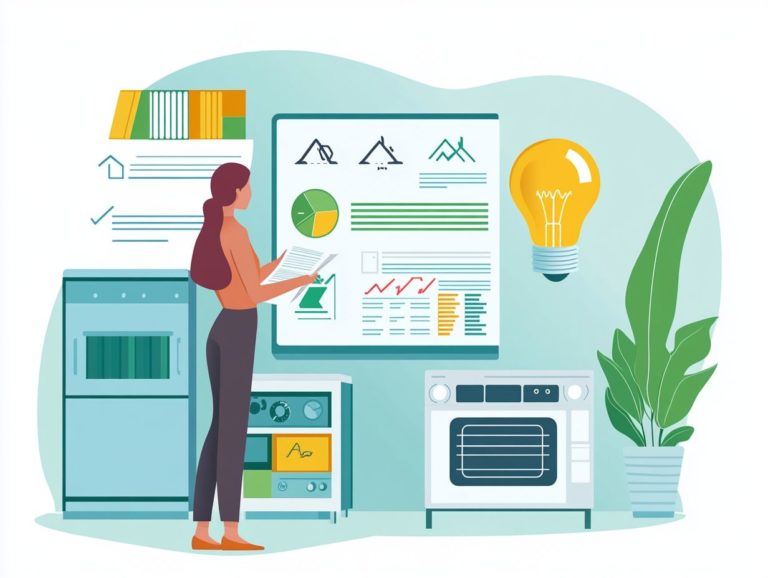The Connection Between Energy Audits and Tax Credits
Energy audits are invaluable for homeowners and business owners seeking to improve energy efficiency and cut costs.
They identify where energy is wasted, creating opportunities for savings and reducing your environmental impact.
These audits also unlock tax credits that encourage energy-efficient upgrades.
Discover how an energy audit can transform your energy use and finances!
Contents
Key Takeaways:
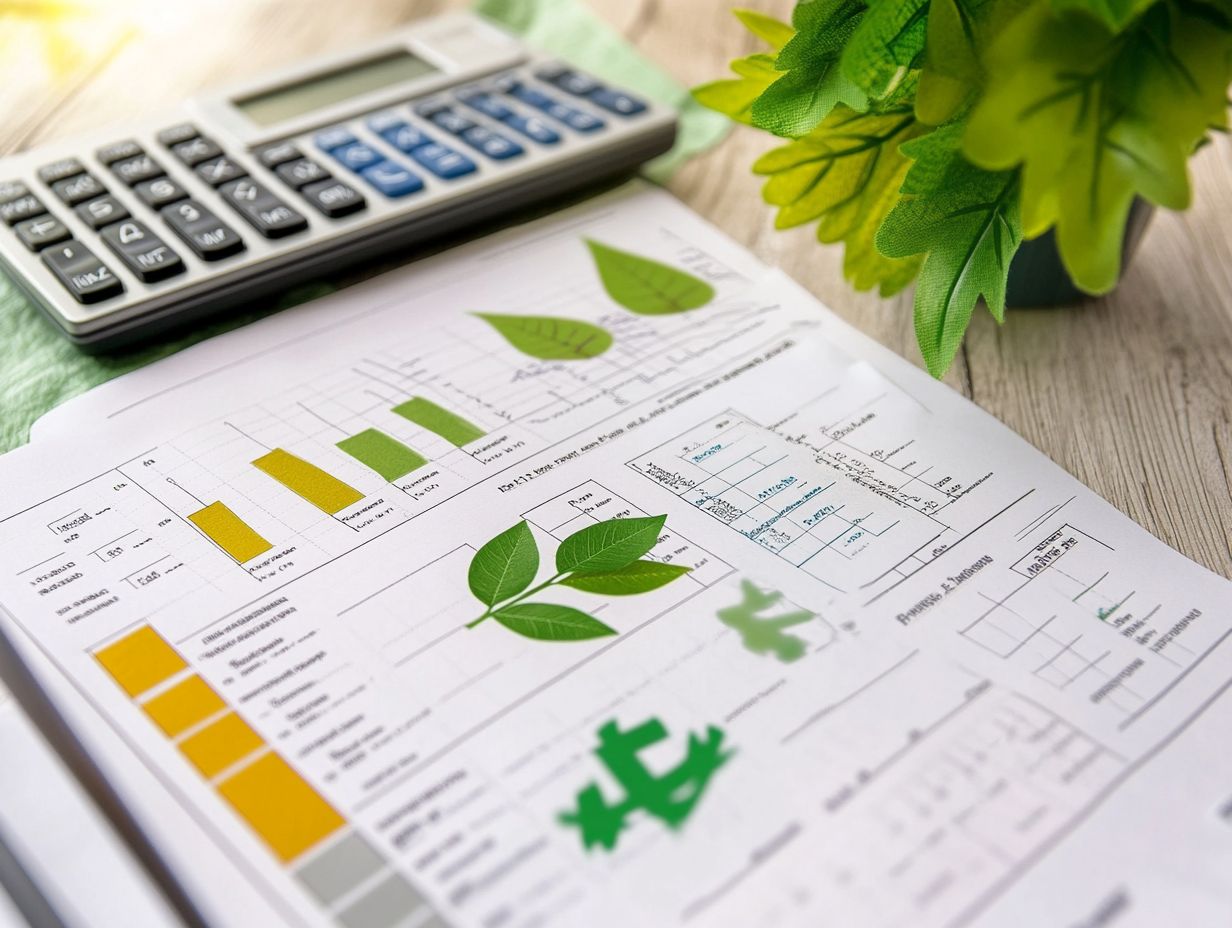
Energy audits help identify savings and reduce environmental impact. Tax credits are available for implementing energy-efficient measures. Ensure your audit meets eligibility requirements and keep proper documentation.
Understanding Energy Audits
Understanding energy audits is crucial for homeowners wanting to boost energy efficiency and maximize savings.
An energy audit, conducted by a certified auditor, assesses your home s energy use and highlights improvement areas.
This process can lead to significant energy savings, making it essential for anyone considering energy-efficient upgrades.
What is an Energy Audit?
An energy audit evaluates your home s energy use, revealing how you can save through improvements.
This examination looks at insulation, heating and cooling systems, appliances, and lighting.
Methods range from simple visual checks to advanced tests that show heat loss.
Work with a certified auditor for accurate assessments and tailored recommendations.
While costs vary based on your home’s size, the potential savings make it a worthwhile investment.
Benefits of Conducting an Energy Audit
Conducting an energy audit provides numerous benefits for your home s efficiency and long-term savings.
By identifying areas for improvement, like upgrading your cooling system, you can significantly cut energy costs.
Investing in energy-efficient solutions enhances comfort and increases your property s value, making audits a key part of home improvement.
Cost Savings and Environmental Impact
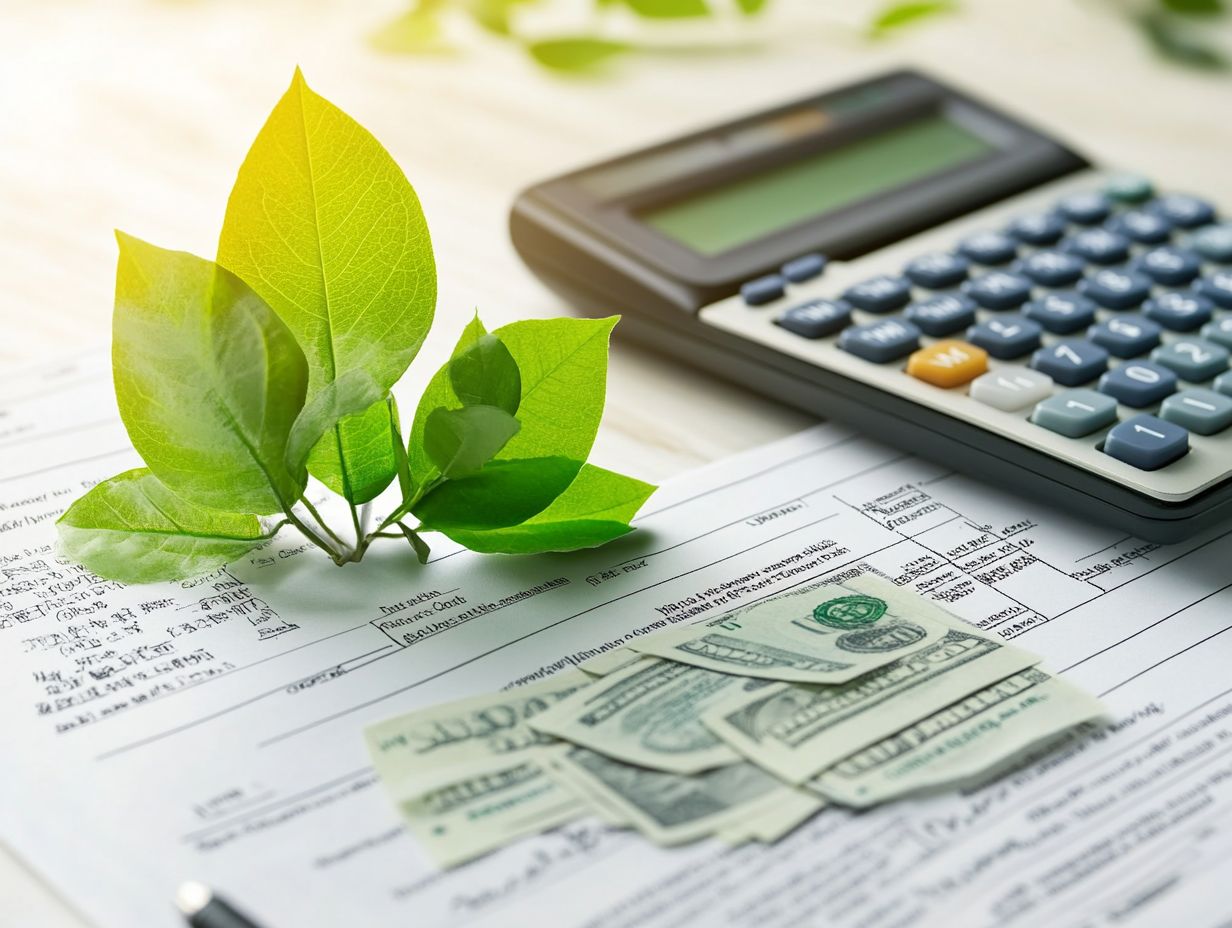
Energy efficiency improvements can lead to significant savings for both your wallet and the environment.
Upgrades like better insulation and efficient appliances often lower your monthly utility bills.
These savings extend to tax incentives, helping offset your initial costs and promoting sustainability.
Tax Credits for Energy Efficiency
Tax credits for energy efficiency offer a great opportunity to reduce costs for energy-efficient upgrades.
Overview of Federal and State Incentives
Federal and state incentives promote energy-efficient improvements. They offer financial assistance to homeowners, making upgrades more affordable.
As a homeowner, it s crucial to understand the eligibility criteria for these benefits. A certified home energy auditor can assess your property and guide you through the variety of options available.
This collaboration ensures your improvements meet your home’s unique needs and maximize potential financial savings.
How Energy Audits Can Help You Qualify for Tax Credits
Energy audits help homeowners qualify for tax credits. They provide essential documentation required by the Internal Revenue Service (IRS) for energy-efficient upgrades.
Eligibility Requirements and Documentation

Understanding eligibility requirements is key for homeowners looking to maximize savings. To qualify for credits, your home must meet specific energy efficiency standards.
This often involves scheduling an upfront energy audit with a certified professional. The audit evaluates your home s energy use and identifies improvement opportunities, like insulation upgrades and energy-efficient appliances.
Gather all relevant documentation before filing for tax credits. This includes:
- The audit report
- Receipts for energy-related enhancements
- A completed tax credit application form
Having these documents ready will substantiate your eligibility and help you benefit from your energy efficiency efforts.
Steps to Take After an Energy Audit
After your energy audit, it s essential to act on the recommendations. Implementing energy-saving measures enhances comfort and can unlock potential tax savings.
Implementing Energy-Saving Measures
Transform insights from your energy audit into real benefits. Focus on key upgrades like insulation and heat pumps to start the process.
Understand your specific needs to prioritize improvements with the highest return on investment. This could include sealing leaks or upgrading to energy-efficient windows.
Hiring professionals ensures correct installation and maximizes your energy savings over time. This approach leads to lower utility bills and a more comfortable living space.
Consider long-term benefits rather than quick fixes. This mindset fosters a more sustainable and efficient home, boosting both your lifestyle and your investment.
Applying for Tax Credits
Applying for tax credits is straightforward for homeowners who have upgraded to energy-efficient solutions. Use IRS Form 5695 to document eligible expenses.
This form plays a vital role in determining your credit amount for enhancements like solar panels and energy-efficient windows. Gather all receipts and records of your energy improvements before filling it out.
Remember, these credits are non-refundable; they can reduce your tax liability to zero but won’t yield a refund. Include the calculated credits with your federal income tax return to take full advantage of your energy-efficient investments.
Frequently Asked Questions
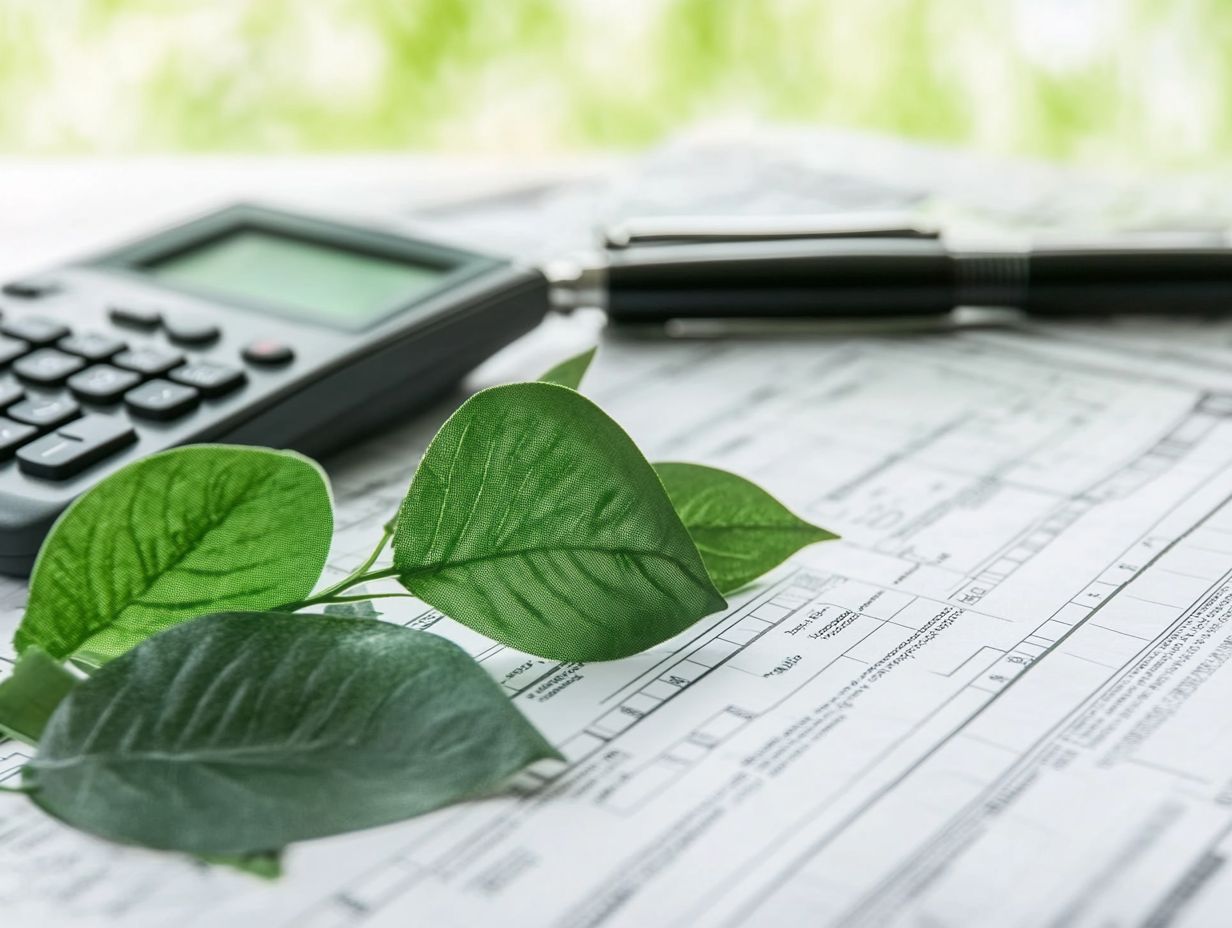
What is an energy audit?
An energy audit evaluates how much energy a building uses and finds ways to save. It includes a professional inspection of systems, appliances, and insulation to spot energy waste.
How do energy audits and tax credits relate?
Energy audits improve efficiency and play a crucial part in sustainability efforts. Understanding the role of energy audits in LEED certification can also help maximize the benefits, while tax credits encourage these upgrades by providing financial incentives.
What are tax credits?
Tax credits reduce your tax bill. They are rewards for taking specific actions, like making energy-efficient upgrades.
What types of tax credits are available for energy efficiency?
There are several federal and state tax credits for energy efficiency. Examples include the Residential Energy Efficiency Property Credit and the Energy-Efficient Commercial Buildings Deduction.
How do I claim tax credits for energy efficiency?
To claim these credits, you need to fill out specific tax forms, like Form 5695 for residential credits. Be sure to include documentation such as receipts or a certificate from a professional energy audit.
Are energy audits and tax credits worth it?
Yes! Energy audits can pinpoint ways to save money and boost property value. Tax credits can significantly lower your costs for energy-efficient upgrades, saving you money on bills in the long run!


